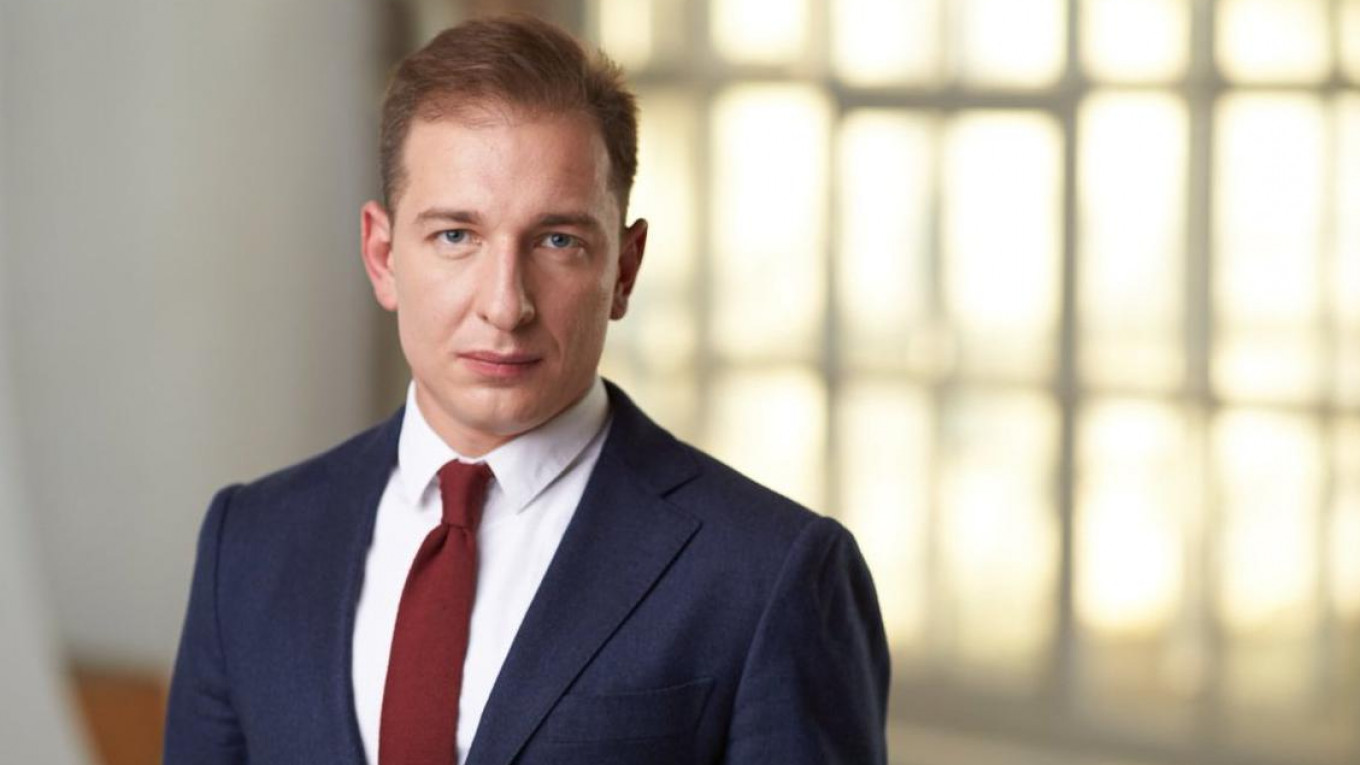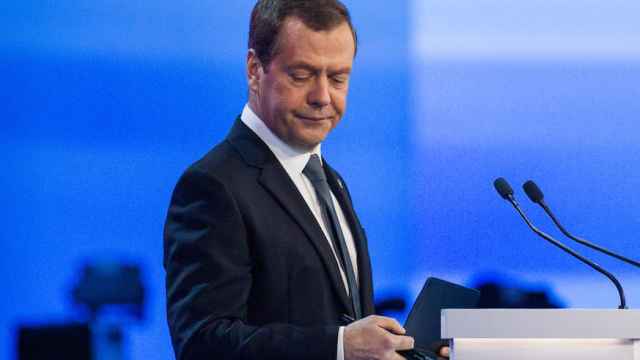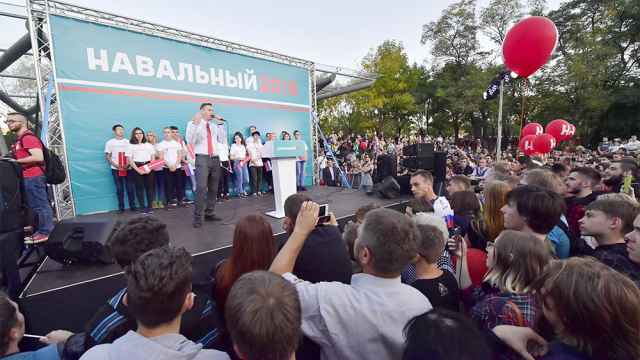Opposition leader Alexei Navalny's Anti-Corruption
Foundation has complied with
a court order to publish retractions
related to a video accusing Prime Minister Dmitry Medvedev of corruption.
The retractions come after Navalny was sued for libel in April by Uzbekistan-born Russian billionaire Alisher Usmanov over allegations of bribery in the video.
While the contested video has been removed from the FBK website and retractions have been published, Rubanov noted that Navalny maintains his own personal YouTube channel and website, for which the foundation was not responsible.
Rubanov himself was detained Tuesday at his home by bailiffs who claimed he had not carried out the court order. He showed them the retractions on the websites, but received an Oct. 13 court summons, as a criminal case on charges of non-compliance remains open.
Navalny was sued for libel in April by Uzbekistan-born Russian oligarch Usmanov over allegations of bribery. He is currently serving a 20-day jail sentence for organizing unauthorized rallies. He announced his intention to run for president next March despite a criminal conviction that bars him from participating and which he says is politically motivated.
In March, Navalny published a video titled “He's Not Dimon To You,” referencing the nickname of Prime Minister Dmitry Medvedev. The exposé, which has garnered nearly 25 million views, includes the claim that Usmanov gave Medvedev a bribe in the guise of a donation to a non-profit group with links to the prime minister. The donation consisted of a land plot with buildings in the village of Znamenskoye.
The video also alleged that Usmanov exercised censorship at the Kommersant news agency, which he owns, and that he gave bribes to Deputy Prime Minister Igor Shuvalov and others.
Usmanov responded to the allegations in a YouTube video rebuttal.
In April, Medvedev also denounced Navalny's research, the RBC business newspaper reported, saying it was “slime” and “nonsense.”
A Message from The Moscow Times:
Dear readers,
We are facing unprecedented challenges. Russia's Prosecutor General's Office has designated The Moscow Times as an "undesirable" organization, criminalizing our work and putting our staff at risk of prosecution. This follows our earlier unjust labeling as a "foreign agent."
These actions are direct attempts to silence independent journalism in Russia. The authorities claim our work "discredits the decisions of the Russian leadership." We see things differently: we strive to provide accurate, unbiased reporting on Russia.
We, the journalists of The Moscow Times, refuse to be silenced. But to continue our work, we need your help.
Your support, no matter how small, makes a world of difference. If you can, please support us monthly starting from just $2. It's quick to set up, and every contribution makes a significant impact.
By supporting The Moscow Times, you're defending open, independent journalism in the face of repression. Thank you for standing with us.
Remind me later.






